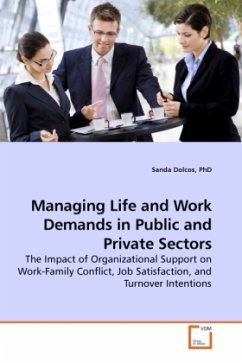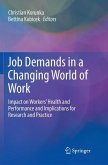It is generally assumed that work life experience is similar in public and private sectors. However, it has been also suggested that the public sector is perceived as more family friendly, and thus attracts employees preferring more balanced work-family (WF) experiences and reduced WF conflict. Although the conventional wisdom seems to support such sector-related segregation, there is no empirical evidence supporting this idea. Our research fills this gap by comparing work-family relationships between employees working in the two sectors. Specifically, it investigates how various types of support (formal/informal) may affect employees WF conflict. Overall, our investigation confirms that the public sector indeed offers higher levels of support, especially at informal level. However, it does not confirm the idea of increased WF conflict in the private sector. By determining the role of certain forms of support in managing WF demands and their consequences in the two sectors (job satisfaction, turnover intentions), this research is useful both to the employers, who are responsible for designing attractive workplaces, and to the employees, who are deciding which sector to choose.
Bitte wählen Sie Ihr Anliegen aus.
Rechnungen
Retourenschein anfordern
Bestellstatus
Storno








